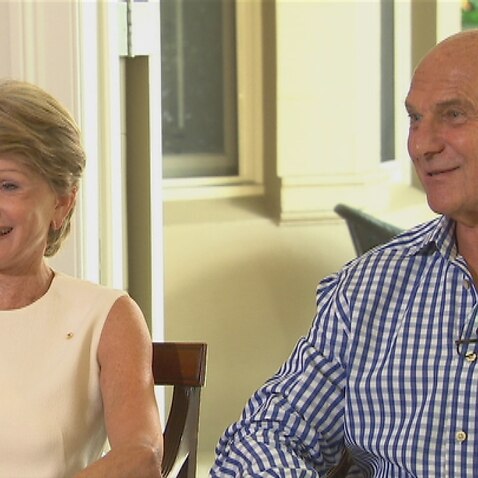Identity Matters: 'I didn't want to be Korean' - Dr Alice Lee
Getting good grades at school was the only way Alice Lee could take control of her destiny.
Dr Alice Lee is a gastroenterologist-hepatologist, and President of the Korean Australian Medical Society. While her practice is open to all Australians, a majority of her patients are of Korean background, as they find comfort and assurance in having a doctor who can speak their mother tongue.
But there was a time when she was reluctant for this to happen. Alice once dreamed of becoming a general practitioner, but chose to specialise instead. She thought by specializing in gastroenterology and hepatology, she wouldn’t have to go back to the Korean community and be stereotyped as “that” doctor who only catered to patients from the same background.
“Towards the end of my training, I thought, 'I'm not quite ready to do that, and I'd like to be able to serve the wider community, not just Koreans,'" she said.
“In a sense, I wanted to escape from being Korean as well. I didn't want to be Korean - I wanted to be Australian. I wanted to have blonde hair and I wanted to just fit in and I didn't want to stick out!”
Sticking Out
Sticking out was always an issue for Alice, particularly when she migrated to Australia in the mid 70’s.
“Multiculturalism wasn't something that was widely accepted," she said. "There was a fair bit of racism."
“At the beginning, it was hard to really understand what racism meant, because we'd come from a uniform country and I was very young at the time anyway. But what I did understand was that kids were looking at me, pointing fingers and laughing, and it just didn't seem right.”
These days she’s much more comfortable with who she is, and is proud to call herself Korean-Australian.
"As I get a little older, being Korean is so important to me because that's where my heart is. No matter where I may live or what I may think, it is the essence of me," she said.
"I think it's hard to separate the two. I can't really say this part of me is Korean, and this part of me is Australian…it is just a merge of your cultures."
Coming To Australia
Alice and her family were among the first wave of South Korean migrants to arrive in Australia after the fallout of the Korean War. Alice’s father decided Australia would provide them with a better life outside of a military government. However, life didn't get easier once they arrived in Australia.
"It was a really difficult time for our parents because they had no language skills," she said. "We had no money. The food was different. Everything was foreign. And they had to completely resettle with the uncertainty of not knowing where life was going to lead."
They ended up settling in a rundown house in Redfern with rats and a leaky roof. Her parents worked multiple jobs to stay afloat.
"Our parents worked 7 days a week, so we were left to see that life is hard," she said. "Having to work two to three jobs to make ends meet, having people look down on us, having the insecurity of not knowing whether you can afford your bills…and not having things, not having school uniforms, not being able to buy new books."
It was having nothing that pushed Dr Lee to aspire for more. Her parents' struggles taught her that while life was hard, it was important to keep moving forward. At the time, her school marks were the only thing she had control over, so it was what she focused on. The hard work paid off when she scored a high enough mark for her HSC to get into medicine.
“It was one of the first miracles in my life - that I was able to get into medicine,” she said.
From Miracles to Reality
Today, Dr Lee works in a number of private and public hospitals, does medical lectures and runs a private clinic.
"It's really hard now to try and relax and take time out, having been brought up in an environment where you had to work all the time," she said.
"I think my experience, where I'm from and my upbringing, has meant that I'm now at a place where I know what it's like not to have things, and I know what it's like to face difficulties, and that has given me the drive to…give back."
Dr Lee runs not-for-profit organisation Hep B Free, which aims to increase awareness of Hepatitis B, particularly in underdeveloped countries. From Papua New Guinea to Myanmar, Dr Lee's next project hits close to home in North Korea.
"Hepatitis is one of the biggest public health burdens in North Korea, and there's no one helping the program at this point in time,” she said.
“It's now impossible for me to walk away, knowing that I can make a difference. Whether it's by being kind, or by being caring, or by giving my skills to people who would really be able to benefit from it. I think that's my heritage."


No comments:
Post a Comment